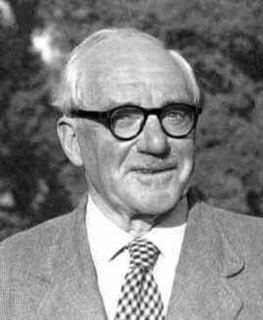A Quote by John Edensor Littlewood
Try a hard problem. You may not solve it, but you will prove something else.
Related Quotes
This is what enlightenment is all about - a deep understanding that there is no problem. Then, with no problem to solve, what will you do? Immediately you start living. You will eat, you will sleep, you will love, you will work, you will have a chit-chat, you will sing, you will dance - what else is there to do?
I teach something called The Law of Probabilities, which says the more things you try, the more likely one of them will work. The more books you read, the more likely one of them will have an answer to a question that could solve the major problems of your life.. make you wealthier, solve a health problem, whatever it might be.
Everyone engaged in research must have had the experience of working with feverish and prolonged intensity to write a paper which no one else will read or to solve a problem which no one else thinks important and which will bring no conceivable reward - which may only confirm a general opinion that the researcher is wasting his time on irrelevancies.
When you begin to worry, go find something to do. Get busy being a blessing to someone; do something fruitful. Talking about your problem or sitting alone, thinking about it, does no good; it serves only to make you miserable. Above all else, remember that worrying is totally useless. Worrying will not solve your problem.
It is hard to communicate understanding because that is something you get by living with a problem for a long time. You study it, perhaps for years, you get the feel of it and it is in your bones. You can't convey that to anyone else. Having studied the problem for five years you may be able to present it in such a way that it would take somebody else less time to get to that point than it took you. But if they haven't struggled with the problem and seen all the pitfalls, then they haven't really understood it.
Solving the population problem is not going to solve the problems of racism, of sexism, of religious intolerance, of war, of gross economic inequality. But if you don't solve the population problem, you're not going to solve any of those problems. Whatever problem you're interested in, you're not going to solve it unless you also solve the population problem. Whatever your cause, it's a lost cause without population control.






































